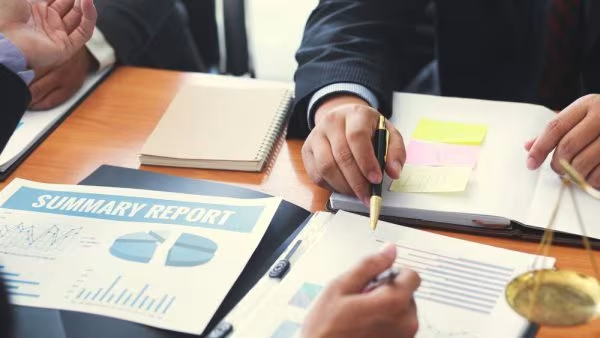Finding the Right Fit: Which Adelaide Lawyer is Better for You?
TL;DR: When choosing a lawyer in Adelaide, asking the right questions during your initial consultation is crucial. This guide helps you understand their experience, fee structures, communication approach, and case strategy, ensuring you find a legal professional who aligns with your needs and expectations for a more confident legal journey.
Embarking on a legal matter can feel daunting, especially when you’re trying to find the right legal professional to guide you. In Adelaide, like anywhere else, selecting a lawyer who understands your specific situation and communicates effectively is key. Your initial consultation isn’t just for them to assess your case; it’s also your opportunity to assess them. Asking thoughtful questions helps you understand their approach, experience, and how they might handle your particular circumstances. Think of it as an interview, where you’re seeking to understand if their expertise and working style are the right fit for you. This guide offers essential questions to help you make an informed decision and feel more confident about your choice.
Understanding Their Experience and Specialisation
Choosing a lawyer often starts with understanding their background. It’s not just about qualifications, but about practical experience that relates to your unique needs.
What’s your experience in cases like mine?
It’s important to understand if the lawyer has handled matters similar to yours before. While every case is unique, a lawyer who has navigated similar legal landscapes will likely have valuable insights into potential challenges and strategies. Ask for specific examples, if appropriate, to gauge their familiarity with the particular legal area you’re dealing with. This helps you get a sense of their practical knowledge.
Do you specialize in this area of law?
The legal field is vast, and many lawyers focus on specific areas, whether it’s family law, property law, criminal defense, or estate planning. A lawyer specializing in your specific legal need often brings a deeper understanding of relevant legislation, case precedents, and common practices in Adelaide. While some general practitioners are excellent, a specialist might offer a more targeted approach for complex issues.
Practicalities of Engagement
Beyond legal expertise, the practical aspects of working with a lawyer are incredibly important for a smooth and transparent process.
How do you structure your fees, and what are the likely costs?
Understanding legal fees upfront is essential to manage expectations and avoid surprises. Lawyers might charge hourly rates, fixed fees for certain services, or a combination. Ask for a clear breakdown of potential costs, including disbursements (out-of-pocket expenses like court filing fees or expert reports). It’s also helpful to ask about payment schedules and if they offer a written costs agreement, which is standard practice in Adelaide.
What’s your communication style and frequency?
Effective communication is vital for any legal matter. Some lawyers prefer email, others phone calls, and some might schedule regular in-person meetings. Discuss how often you can expect updates, who will be your primary point of contact, and how quickly they typically respond to inquiries. Knowing this helps set expectations and ensures you feel informed throughout your case.
Who will actually handle my case day-to-day?
While you might meet with a senior partner initially, sometimes junior lawyers, paralegals, or legal assistants handle much of the day-to-day work. It’s perfectly reasonable to ask who will be directly responsible for tasks like drafting documents, communicating with opposing parties, and attending court if necessary. Understanding the team structure helps you know who to contact and what roles different people play.
Case Strategy and Expectations
Once you understand their background and how they operate, it’s time to delve into the specifics of your case and what you can realistically expect.
What are the likely outcomes and potential challenges of my case?
A lawyer cannot guarantee specific outcomes, but they should be able to provide an honest assessment of the strengths and weaknesses of your case. Ask about the potential best-case, worst-case, and most likely scenarios. Discussing challenges upfront helps you prepare mentally and strategically, allowing for a more realistic understanding of the road ahead.
What information and documents will you need from me?
Preparing for your legal matter often involves gathering various documents and providing detailed information. Ask for a comprehensive list of everything they’ll require, such as contracts, correspondence, financial records, or personal statements. Being proactive in providing this information can help streamline the process and ensure your lawyer has all the necessary details to build your case effectively.
How long might this legal process realistically take?
Legal matters can sometimes be lengthy, and timelines can vary significantly depending on the complexity of the case, court schedules, and the cooperation of other parties. While a precise timeline is often impossible, a lawyer should be able to give you an estimated timeframe for different stages of the process. This helps you manage your personal and professional commitments around the legal proceedings.
Building Trust and Compatibility
Beyond the technicalities, finding a lawyer you trust and feel comfortable working with is incredibly important for your peace of mind.
How do you approach client relationships and communication during difficult times?
Legal challenges can be stressful. It’s helpful to understand a lawyer’s philosophy on client support and how they handle sensitive situations. Do they prioritize empathy, directness, or a combination? Discussing this can give you insight into their client care approach and help you determine if their style aligns with your needs for support and guidance.
Can you provide references or discuss past client experiences (anonymously)?
While client confidentiality prevents lawyers from sharing specific client details, they might be able to offer general insights into how they’ve helped similar clients or provide testimonials with consent. This question aims to understand their track record and client satisfaction, offering a glimpse into how others have experienced working with them.
Conclusion
Choosing a lawyer in Adelaide is a significant decision. By taking the time to ask these key questions during your initial consultation, you’re not just gathering information; you’re actively seeking a legal partner who understands your needs, communicates clearly, and inspires confidence. A good fit can make a considerable difference in your legal journey, providing peace of mind as you navigate complex situations. Don’t hesitate to ask until you feel truly comfortable with your choice.





